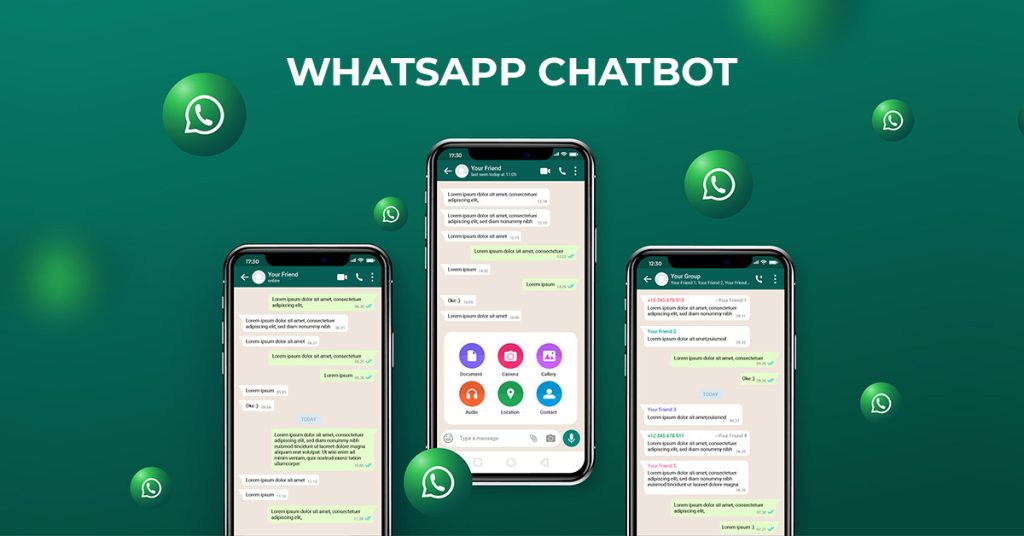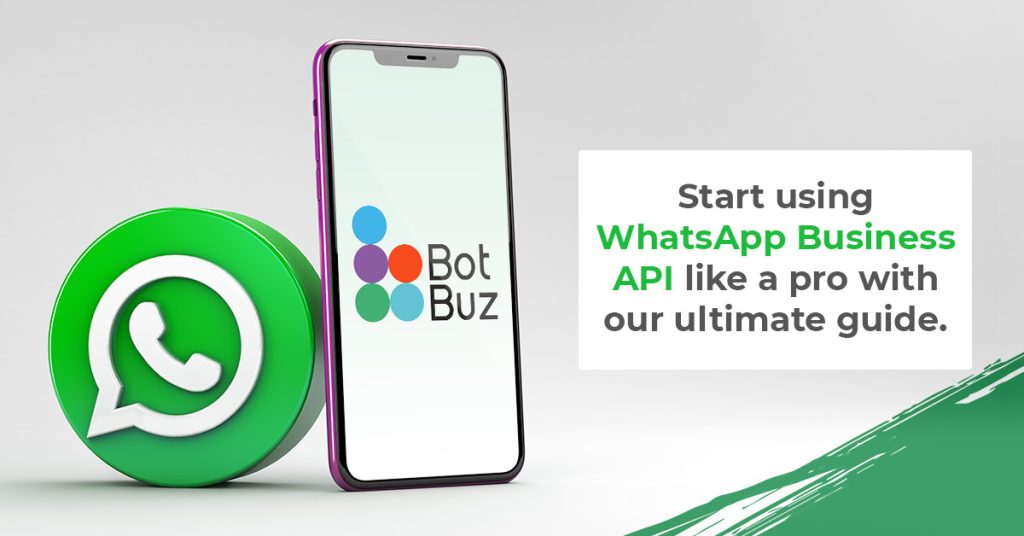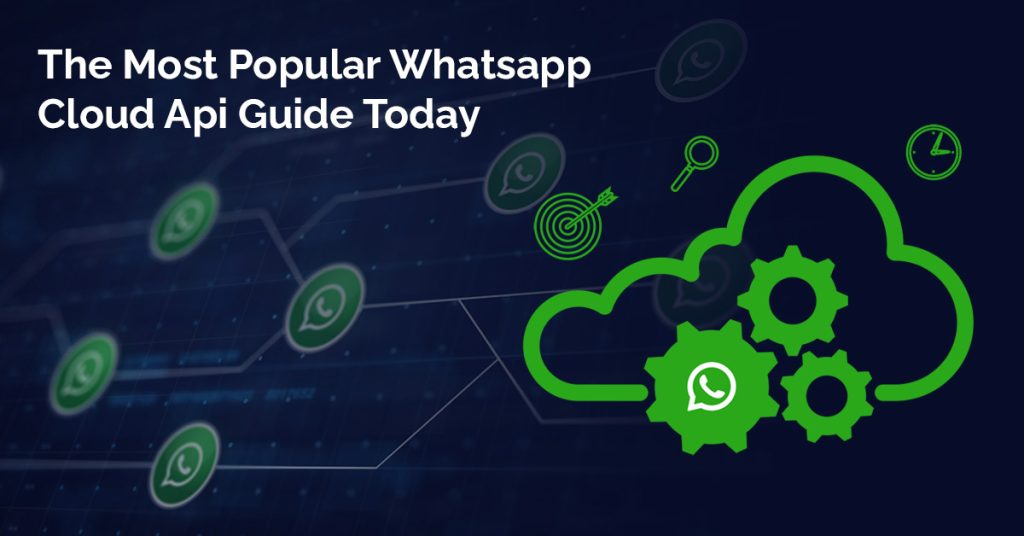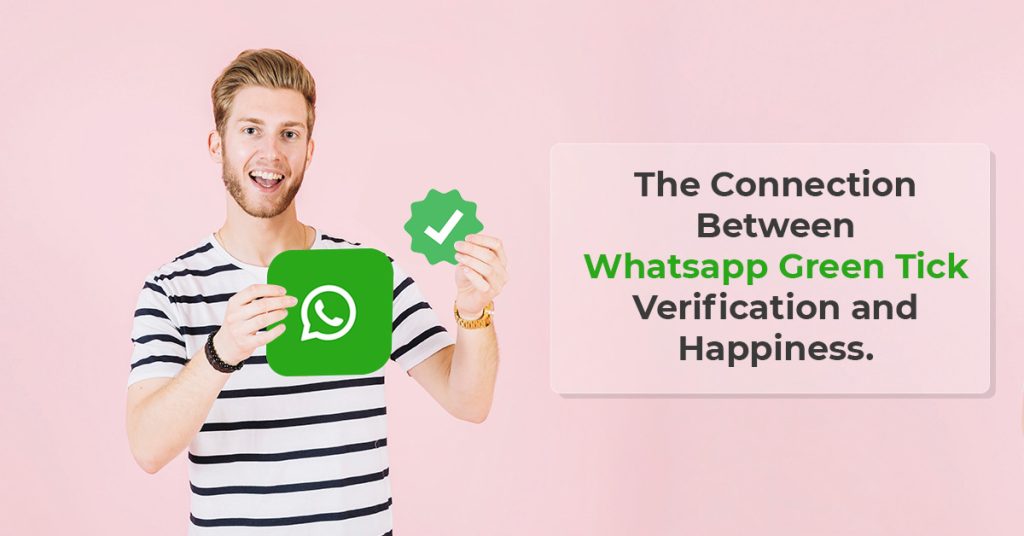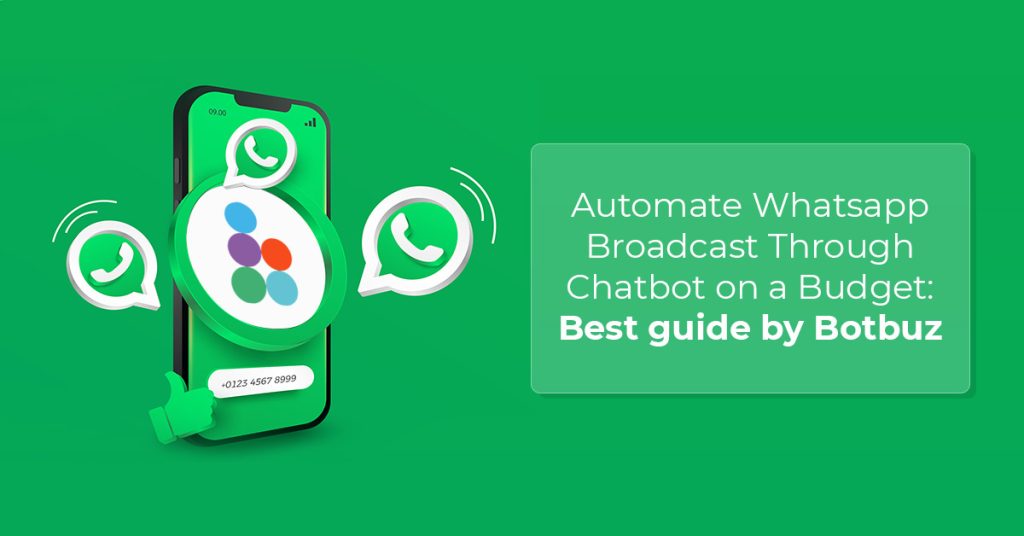Rise of the chatbots:
Chatbots have been around for decades, but their popularity has exploded in recent years. This is due to a number of factors, including:
- The rise of artificial intelligence (AI) and machine learning, which has made it possible to create chatbots that are more intelligent and capable.
- The growing popularity of messaging apps, such as WhatsApp chatbot, Facebook Messenger, and Telegram, which have made it easier for businesses to reach customers on their preferred channels.
- The increasing demand for 24/7 customer support, which chatbots can provide.
The rise of chatbots is having a major impact on the way businesses interact with customers. Chatbots are providing a more convenient, efficient, and personalized way for customers to get the information and support they need. As chatbot technology continues to improve, we can expect to see even more businesses adopting chatbots to improve their customer experience.
Here are some of the key trends that are driving the rise of chatbots:
The increasing demand for 24/7 customer support:
Customers are demanding 24/7 customer support, and chatbots are a perfect way to meet this demand. Chatbots can answer customer questions and provide support at all hours of the day and night.
The growth of mobile messaging:
Mobile messaging apps, such as WhatsApp, Facebook Messenger, and Telegram, are becoming popular. Chatbots can provide customer service & support through these messaging apps. This is a convenient way for customers to get the help they need.
The advancement of AI and machine learning:
The advancement of AI & machine learning is making it possible to create chatbots that are more intelligent & capable. These chatbots can understand natural language. They can learn from their interactions with customers & provide more personalized & helpful support.
The increasing affordability of chatbot platforms:
Chatbot platforms are becoming more affordable, making it easier for businesses of all sizes to adopt chatbots. This is driving the adoption of chatbots by small businesses and startups.
The rise of chatbots is a major trend that is having a significant impact on the way businesses interact with customers. As chatbot technology continues to improve, we can expect to see even more businesses adopting chatbots to improve their customer experience.
WhatsApp chatbots are a powerful tool for businesses to engage with customers and streamline operations. They can,
- Answer customer questions about products and services
- Provide product information and pricing
- Process orders and payments
- Send shipping notifications
- Offer customer support
- Collect feedback
- Promote special offers and events
WhatsApp chatbots are available 24/7, so businesses can provide customer support even when their team is not available. They can also help businesses to save time and money by automating tasks that would otherwise be done by human customer service representatives.
Benefits of using WhatsApp chatbots:
- They can help you to reach a wider audience. WhatsApp is one of the most popular messaging apps in the world, with over 2 billion active users. By using a WhatsApp chatbot, you can reach a large number of potential customers who are already using the app.
- They can help you to build relationships with customers. WhatsApp is a personal messaging app, so customers are more likely to feel comfortable interacting with a chatbot on this platform. This can help you to build relationships with customers and create a more positive customer experience.
- They can help you to improve customer satisfaction. A well-designed WhatsApp chatbot can answer customer questions quickly and accurately, which can help to improve customer satisfaction.
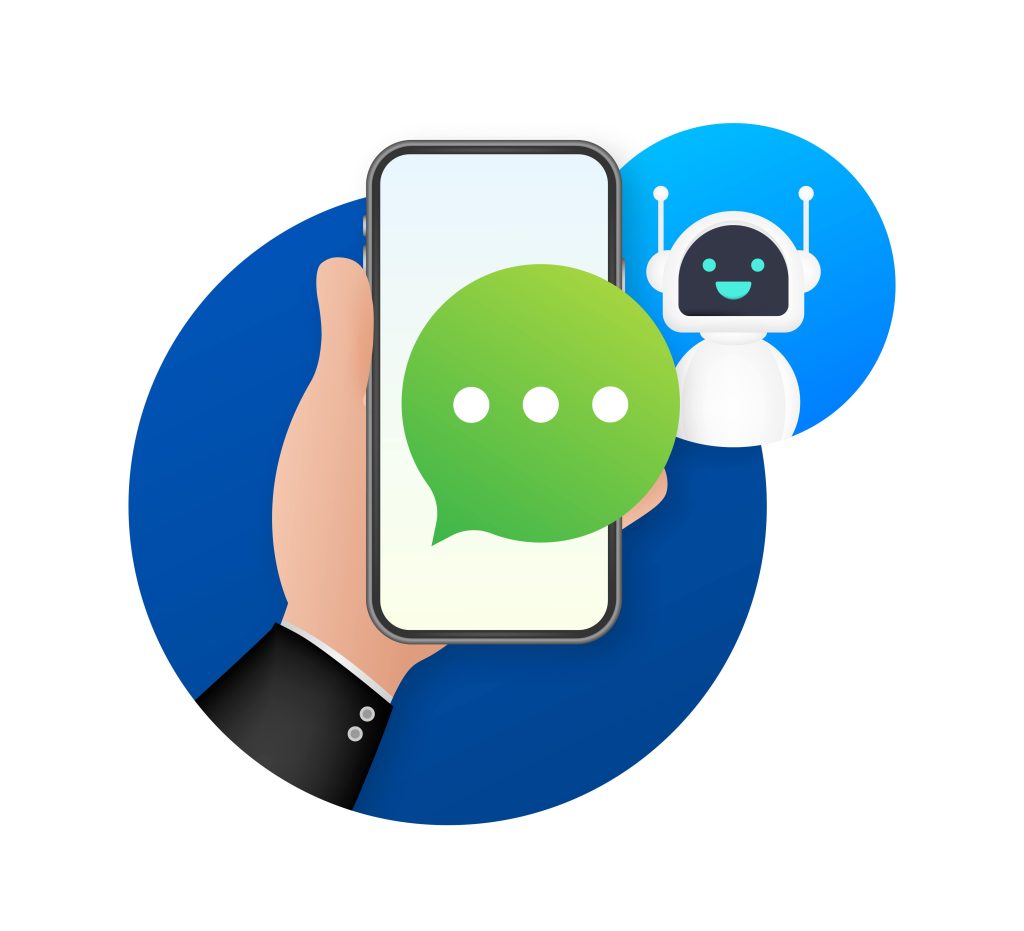
Use cases of Whatsapp chatbots:
1. Customer service:
Answering customer questions: WhatsApp chatbots can answer customer questions about products, services, and policies. This can help businesses to provide 24/7 customer service. Thus, reducing the workload of customer service representatives.
Processing orders: WhatsApp chatbots can process orders, including taking payments and providing shipping information. This can help businesses to streamline their order processing and improve customer satisfaction.
Providing support: WhatsApp chatbots can provide support to customers, including troubleshooting issues & providing technical help. This can help businesses to improve the customer experience and reduce customer churn.
For example, a clothing retailer can use WhatsApp chatbot to answer customer questions about products. It helps to provide sizing information, and process orders. This could help the retailer to provide a more convenient & personalized customer experience.
2. Sales:
Generating leads: WhatsApp chatbots can generate leads by qualifying prospects and scheduling appointments. This can help businesses to reach a wider audience and increase sales.
Qualifying prospects: WhatsApp chatbots can qualify prospects by asking questions about their needs and interests. This can help businesses to identify the most promising prospects & focus their sales efforts on them.
Scheduling appointments: WhatsApp chatbots can schedule appointments with prospects and customers. This can help businesses to streamline their sales process & improve the customer experience.
For example, a SaaS company could use a WhatsApp chatbot to generate leads by asking users to sign up for a free trial. The chatbot could then qualify prospects by asking them questions about their business needs. Once the prospect qualifies, the chatbot could connect them with a sales representative.
3. Marketing:
Promoting products and services: WhatsApp chatbots can promote products & services by sending out messages & offers to customers. This can help businesses to increase brand awareness and generate leads.
Collecting feedback: WhatsApp chatbots can collect feedback from customers about products, services & customer experience. This can help businesses to improve their offerings & provide a better customer experience.
Running contests and promotions: WhatsApp chatbots can run contests & promotions to engage customers. This will help to generate excitement about the brand. This can help businesses to increase brand awareness & generate leads.
For example, a food delivery app could use a WhatsApp chatbot to promote its latest deals & discounts. The chatbot could also collect feedback from users about their experience with the app.
4. Education:
Providing personalized learning experiences: WhatsApp chatbots can provide personalized learning experiences to students by tailoring the content & pace of instruction to the individual student’s needs. This can help students to learn more effectively and achieve their academic goals.
Answering student questions: WhatsApp chatbots can answer student questions about course material, assignments, and exams. This can help students to get the help they need when they need it, and improve their learning experience.
Grading assignments: WhatsApp chatbots can grade assignments, freeing up teachers to focus on more important tasks. This can help to improve the efficiency of the grading process & provide students with feedback on their work more quickly.
For example, an online learning platform could use a WhatsApp chatbot to answer student questions about course content. The chatbot could also grade assignments and provide feedback to students.
5. Healthcare:
Providing patient education: WhatsApp chatbots can provide patient education about their conditions, medications, and treatment plans. This can help patients to better understand their healthcare needs & make informed decisions about their care.
Answering patient questions: WhatsApp chatbots can answer patient questions about their conditions, medications, and treatment plans. This can help patients to get the information they need when they need it. It helps to improve their overall healthcare experience.
Scheduling appointments: WhatsApp chatbots can schedule appointments with patients. It helps in freeing up healthcare providers to focus on more important tasks. This can help to improve the efficiency of the scheduling process. Thus, ensuring that patients get the care they need when they need it.
For example, a hospital could use a WhatsApp chatbot to provide patients with information about their condition or treatment plan. The chatbot could also answer questions about insurance or billing.
6. Travel:
Booking flights, hotels, and tours: WhatsApp chatbots can book flights, hotels & tours for customers. This helps customers to book travel arrangements without contacting a travel agent.
Providing travel information: WhatsApp chatbots can provide travel information to customers. It provides information such as weather forecasts, flight status & hotel availability. This can help customers to plan their trips more & avoid any unexpected surprises.
Answering customer questions: WhatsApp chatbots can answer customer questions about travel arrangements. It helps in providing information such as how to check in for a flight or cancel a hotel reservation. This can help customers to get the information they need when they need it. Thus, improving their overall travel experience.
For example, a travel agency could use a WhatsApp chatbot to help customers book flights & hotels. The chatbot could also provide customers with information about different destinations and activities.
7. E-commerce:
Answering customer questions: WhatsApp chatbots can answer customer questions about products, prices, and shipping. This can help customers to get the information they need when they need it. Thus, it helps in improving their overall shopping experience.
Processing orders: WhatsApp chatbots can process orders, including taking payments and providing shipping information. This can help businesses to streamline their order processing and improve customer satisfaction.
Providing support: WhatsApp chatbots can provide support to customers, including troubleshooting issues & providing technical help. This can help businesses to improve customer satisfaction and earn customer loyalty.
For example, an e-commerce business could use a WhatsApp chatbot to answer customer questions about product availability, shipping options & return policies. The chatbot could also process orders, provide support to customers with questions or problems & promote products & services.
8. Retail:
Providing product information: WhatsApp chatbots can provide product information to customers, such as price, availability & features. This can help customers to make informed purchasing decisions.
Answering customer questions: WhatsApp chatbots can answer customer questions about products, prices, and shipping. This can help customers to get the information they need when they need it. Thus, improving their overall shopping experience.
Processing orders: WhatsApp chatbots can process orders, including taking payments & providing shipping information. This can help businesses to streamline their order processing and improve customer satisfaction.
For example, a retail business could use a WhatsApp chatbot to greet customers by name, recommend products based on their purchase history & provide updates on the status of their orders.
9. Fintech:
Providing financial advice: WhatsApp chatbots can provide financial advice to customers. It provides advice such as how to save money, invest wisely & manage debt. This can help customers to improve their financial well-being.
Answering customer questions: WhatsApp chatbots can answer customer questions about financial products & services. It answers questions such as how to open a bank account, apply for a loan, or invest in stocks. This can help customers to get the information they need when they need it. Thus, improving their overall financial experience.
Processing payments: WhatsApp chatbots can process payments, such as credit card payments & bill payments. This can help customers to make payments quickly & easily, without having to go to a bank or ATM.
For example, a financial services business could use a WhatsApp chatbot to answer customer questions. It can help customers to check account balances & transaction fees. The chatbot also provides financial advice, process payments, and promote products and services.
Best whatsapp chatbot services by Botbuz no code chatbot builder:
Botbuz in customer services: Botbuz is a 24/7 customer service chatbot. It helps to answer customer questions, process orders, and provide support. It is easy to use and can fit the needs of any business.
Botbuz in Sales: Botbuz Sales is a chatbot that can generate leads, qualify prospects & schedule appointments. It is also able to follow up with prospects and customers. Botbuz Sales can help businesses to increase sales and improve customer satisfaction.
Botbuz in Marketing: Botbuz Marketing is a chatbot that can promote products & services. It can also collect feedback, run contests & promotions. It can personalize the customer experience & target marketing campaigns.
Botbuz in Education: Botbuz Education is a chatbot that can provide personalized learning experiences. It can answer student questions & grade assignments. It can also provide recommendations for books, articles, and other resources.
Botbuz is a no-code chatbot platform that makes it easy to create and deploy chatbots on WhatsApp. It offers a wide range of features & integrations. Thus, making it a versatile & powerful tool for businesses of all sizes.
Here are some of the benefits of using Botbuz to create a WhatsApp chatbot:
No coding required: Botbuz is a no-code chatbot platform. Thus it means that you don’t need any coding experience to create a chatbot. This makes it a great option for businesses that don’t have the resources or expertise to develop their own chatbots.
Easy to use: Botbuz is very easy to use. The platform has a drag & drop interface that makes it simple to create & edit chatbot conversations.
Powerful features: Botbuz offers a wide range of features. It allows you to create chatbots that can do anything from answering customer questions to booking appointments.
Scalable: Botbuz is a scalable platform that can create chatbots for businesses of all sizes.
Integrations: Botbuz integrates with a wide range of third-party applications. It integrates with CRM systems, payment gateways & marketing automation platforms. This makes it easy to connect your chatbot to your existing systems and processes.
Overall, Botbuz is a powerful and versatile platform that makes it easy to create & deploy chatbots on WhatsApp. It is a great option for businesses of all sizes that are looking for a way to improve customer service, automate tasks & collect data.
WhatsApp chatbots are popular as businesses look for ways to improve customer service. It automates tasks & collects data. WhatsApp is a popular messaging platform with over 2 billion active users worldwide. Thus, making it a great channel for businesses to reach their target audience. WhatsApp chatbots are a powerful tool that can improve customer service, automate tasks & collect data. If you are looking for a way to improve your business, consider using a WhatsApp chatbot.
